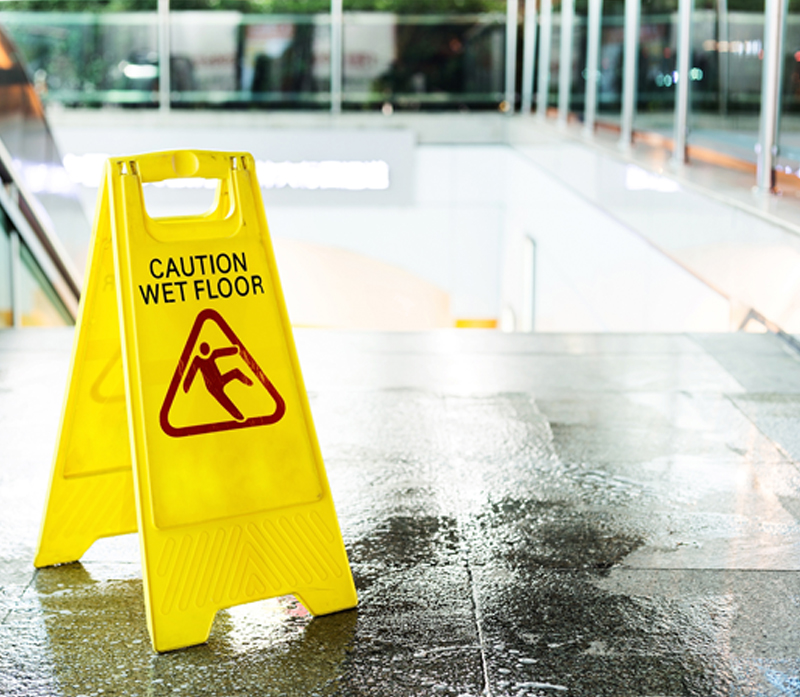Is somebody responsible for your accident?
Nearly every place outside the home is covered by the Occupiers’ Liability Act 1957. This Act requires those with control over premises to be responsible for preventing hazards that might harm visitors.
For workplaces, the relevant legislation is the Health and Safety at Work Act 1974. This ensures that employers are responsible for their employees’ health, safety, and welfare in the workplace.
Under this legislation, there is the responsibility to:
- Assess and create an environment that is as safe as possible.
- Display clear signs warning people about risks, e.g. slippery floors.
- Make sure fixtures and fittings are maintained.
- Take extra safety precautions if children or vulnerable adults use the premises.
- Not conduct unsafe activities on the premises, which could cause injury to another person.
When safety precautions are inadequate, you may be able to claim compensation for a slip, trip or fall.
